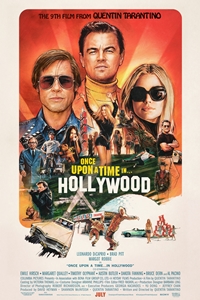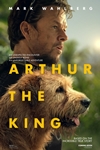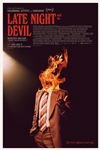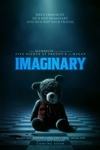Once Upon a Time...in Hollywood (R) ★★★½
 Once Upon a Time in Hollywood, the "ninth film from Quentin Tarantino," might be too long and a little self-indulgent. But it's also chock-full of brilliant moments, great performances, and a sense of '60s Hollywood infused with a mix of fairy tale nostalgia and clear-eyed realism. The movie breezes along at its own pace, switching freely between parallel stories and never quite managing to be what one expects it to be. This is the director's least violent feature film but it is in every meaningful way evident as a product of the man who made Pulp Fiction.
Once Upon a Time in Hollywood, the "ninth film from Quentin Tarantino," might be too long and a little self-indulgent. But it's also chock-full of brilliant moments, great performances, and a sense of '60s Hollywood infused with a mix of fairy tale nostalgia and clear-eyed realism. The movie breezes along at its own pace, switching freely between parallel stories and never quite managing to be what one expects it to be. This is the director's least violent feature film but it is in every meaningful way evident as a product of the man who made Pulp Fiction.
Making Once Upon a Time in Hollywood, Tarantino is in his element, doing what he loves best. Crossing off items on his bucket list. Pairing Leonardo DiCaprio and Brad Pitt as a modern-day Newman & Redford. Playing in a sandbox that allows him not only to recreate 1969 Hollywood but insert his actors into classic films. (Ever wondered how it might look if Leonardo DiCaprio replaced Steve McQueen in The Great Escape?) As in Pulp Fiction, Tarantino isn't telling a single story. He's taking threads and allowing them to cross-over and intersect. He's also reweaving an historical tapestry…and we all know from Inglourious Basterds that his interpretation of the past doesn't necessarily match that of high school text books.
The movie transpires in 1969 Los Angeles and focuses on trio of characters: fading TV Western icon Rick Dalton (DiCaprio); his stunt double, Cliff Booth (Pitt); and rising movie star Sharon Tate (Margot Robbie). The first two are figments of Tarantino's imagination (although he has admitted that William Shatner, among others, was an inspiration for Dalton) while Tate is an idealized version of the late actress who, at the time, was Roman Polanski's wife. To hone his representation of Tate, Tarantino reached out to her sister, Debra, but not her husband.
Once Upon a Time in Hollywood unfolds against the backdrop of a changing industry and its impacts on Dalton and Booth. We also are provided with lingering glimpses of the so-called Mason family, a group of mostly young women who, in thrall to the mysterious and Machiavellian Charles Manson (Damon Herriman), are willing and able to do "the devil's work" to please their puppeteer. History has its version of what happened on an August night in 1969; Tarantino has his and this move builds to his recreation of events whose factual specifics can easily be found on Wikipedia.
The bulk of the movie isn't about Manson, his family, or his intended victim(s). Indeed, Manson's appearance is fleeting, although some of the women living under his thumb have more significant roles. Instead, Once Upon a Time in Hollywood is about show business life in Tinseltown during the '50s and '60s. Dalton, having fallen on hard times after his TV series was cancelled, is trying to re-invent himself as a "heavy" and is weighing an option presented by his fast-talking agent, Marvin Schwarzs (Al Pacino), to go to Rome and make Spaghetti Westerns. Booth, with a mysterious death hanging over him, leads a rootless life that suits him even though his work consists of doing on the most dangerous of stunts. And the ethereal Tate sparkles like a sequined star as she lights up Hollywood. This is their movie; Manson and his groupies are intruders.
Tarantino has always had a flair for comedy. Pulp Fiction is at times hilarious and some of that humor is of the bloodiest variety (most notably when Vincent accidentally shoots Marvin in the head). Once Upon a Time in Hollywood, perhaps because the violence has been dialed back (it is used sparingly and, at least for Tarantino, is restrained), is the closest the director has come to an out-an-out comedy. There are numerous (to use the cliché) laugh-aloud sequences, making this easily the funniest film of 2019 (to date). Tarantino also has fun tweaking expectations and playing with perceptions. One suspenseful scene plays out counter to what we expect. In what has become a quirky directorial trademark, there are numerous bare feet, all given due prominence whether dirty or calloused. He's playing with a penchant that goes back to Pulp Fiction.
Although this is the director's first time working with the A-list likes of Brad Pitt, Margot Robbie, and Al Pacino, several actors are making return engagements. Leonardo DiCaprio, who picks his projects with great care, won raves for Django Unchained and his work here is better. He and Pitt have a nearly perfect chemistry and, like Travolta and Samuel L. Jackson, it makes the give-and-take of the dialogue work all the better. Tarantino veterans Kurt Russell, Bruce Dern, Michael Madsen, and Zoe Bell make appearances. And Uma Thurman's daughter, Maya Hawke, has a small role as a flower child.
Tarantino hasn't merely set Once Upon a Time in Hollywood in the sixties. He has infused the film with the decade in which it transpires. At a time when everything is made in digital, Tarantino shot the movie on film (and, in select theaters, it will be shown in either 35mm or 70mm - where projectors are available). It makes a difference to how the movie looks and feels - older, less crisp, and warmer. Tarantino and cinematographer Robert Richardson have employed camera movements and techniques common from the era. The production doesn't opt for realism in its representation of 1969 - it filters everything through an unapologetically romantic lens that at times almost matches La La Land in expressing its love for the city.
Many of the pleasures to be found in Once Upon a Time in Hollywood are better discovered on their own than revealed in a review. Valid criticisms can be leveled against Tarantino's latest - the most obvious of which relates to its length. There are times, especially late in the proceedings, when the narrative momentum flags and it becomes apparent that 161 minutes might have been too generous. The film's meandering approach, however, is as much an asset as a detriment. Although it contributes to the lack of cohesion, it allows Tarantino great freedom in advancing his characters' stories. He relies a little too much on nostalgia - how many movies and TV shows are referenced, either directly or indirectly? - but many of those bits still bring a smile to the face. Once Upon a Time in Hollywood was made by a movie-lover for movie-lovers. And even those who don't qualify may still enjoy the hell out of it.
© 2019 James Berardinelli
To get the full Quicklook Films experience, uncheck "Enable on this Site" from Adblock Plus
box office top 10

Godzilla x Kong: The New Empire Released: March 29, 2024 Cast: Rebecca Hall, Brian Tyree Henry 80M

Ghostbusters: Frozen Empire Released: March 22, 2024 Cast: Paul Rudd, Carrie Coon 15.7M

Dune: Part Two Released: March 1, 2024 Cast: Timothée Chalamet, Rebecca Ferguson 11.1M

Kung Fu Panda 4 Released: March 8, 2024 Cast: Jack Black, Viola Davis 10.2M

Immaculate Released: March 22, 2024 Cast: Sydney Sweeney, Álvaro Morte 3.3M

Tillu Square (Hindi) Released: March 29, 2024 Cast: Sidhu Jonnalagadda, Anupama Parameswaran 2.5M

Arthur the King Released: March 15, 2024 Cast: Mark Wahlberg, Simu Liu 2.4M

Late Night with the Devil Released: March 22, 2024 Cast: David Dastmalchian, Laura Gordon 2.2M

Crew (Hindi) Released: March 29, 2024 Cast: Kriti Sanon, Kareena Kapoor 1.7M

Imaginary Released: March 8, 2024 Cast: DeWanda Wise, Tom Payne (II) 1.4M






